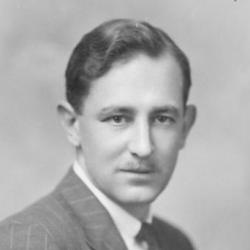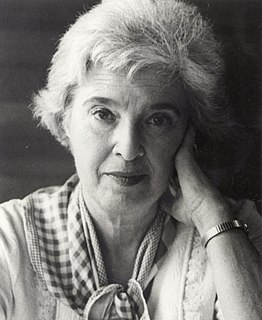A Quote by Hugh MacLennan
But that night as I drove back to Montreal, I at least discovered this: that there is no simple explanation for anything important any of us do, and that the human tragedy, or the human irony, consists in the necessity of living with the consequences of actions performed under the pressure of compulsions so obscure we do not and cannot understand them.
Related Quotes
It cannot be said too often that actions are good or bad in the light of consequences, and that a clear perception of consequences would control actions. That which increases the sum of human happiness is moral; and that which diminishes the sum of human happiness is immoral. . . . Blind, unreasoning obedience is the enemy of morality.
Ladies, you may not realize this, understand this, or even believe this, but everything else we do is ultimately for you. Men don't do anything-create art, build businesses, donate to charity, invent things, or do anything noteworthy-for any reason other than to impress women, and thus get them to have sex with us. If women didn't exist, we'd still just be naked grunting apes living in caves. In a very real way, pussy is the key to human civilization. You don't have to like it, but it's a fact; if you understand it, you understand men.
Perhaps one cannot, what is more one must not, understand what happened, because to understand [the Holocaust] is almost to justify...no normal human being will ever be able to identify with Hitler, Himmler, Goebbels, Eichmann, and endless others. This dismays us, and at the same time gives us a sense of relief, because perhaps it is desirable that their words (and also, unfortunately, their deeds) cannot be comprehensible to us. They are non-human words and deeds, really counter-human.
We've got to temper anything we say with that. On the other hand, you've got to be serious about what you do. And you've got to understand the price you pay for frivolity or just for greed - it's a very high price, especially if you're involved in this sacred material, which is about the human heart and human desire and human tragedy.
Short story writers simply do what human beings have always done. They write stories because they have to; because they cannot rest until they have tried as hard as they can to write the stories. They cannot rest because they are human, and all of us need to speak into the silence of mortality, to interrupt and ever so briefly stop that quiet flow, and with stories try to understand at least some of it.
I don't think God is an explanation at all. It's simply redescribing the problem. We are trying to understand how we have got a complicated world, and we have an explanation in terms of a slightly simpler world, and we explain that in terms of a slightly simpler world and it all hangs together down to an ultimately simple world. Now, God is not an explanation of that kind. God himself cannot be simple if he has power to do all the things he is supposed to do.
Not that I ever felt the necessity of proving that all human beings suffer the same way, feel joy the same way, but it happened on my way - when I get close to these people, just by the simple intervention of translation I can actually reach them and ask them something, and their reaction is as I expected. I see that the relationship goes so smoothly, and I realize that cultural languages and specificities are nothing but simple obstacles that you can easily overcome. It's obvious that human beings are the same wherever they are.



































